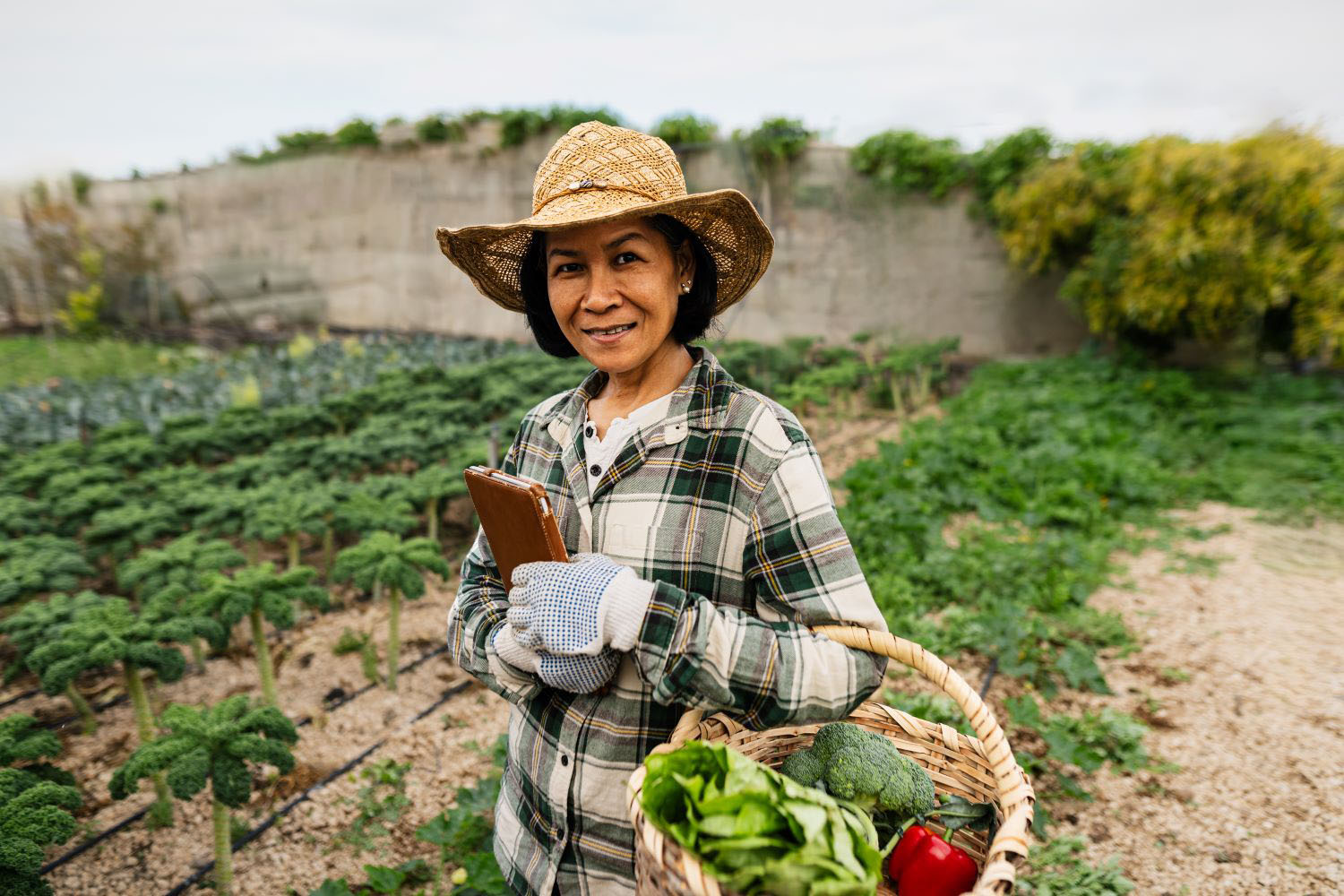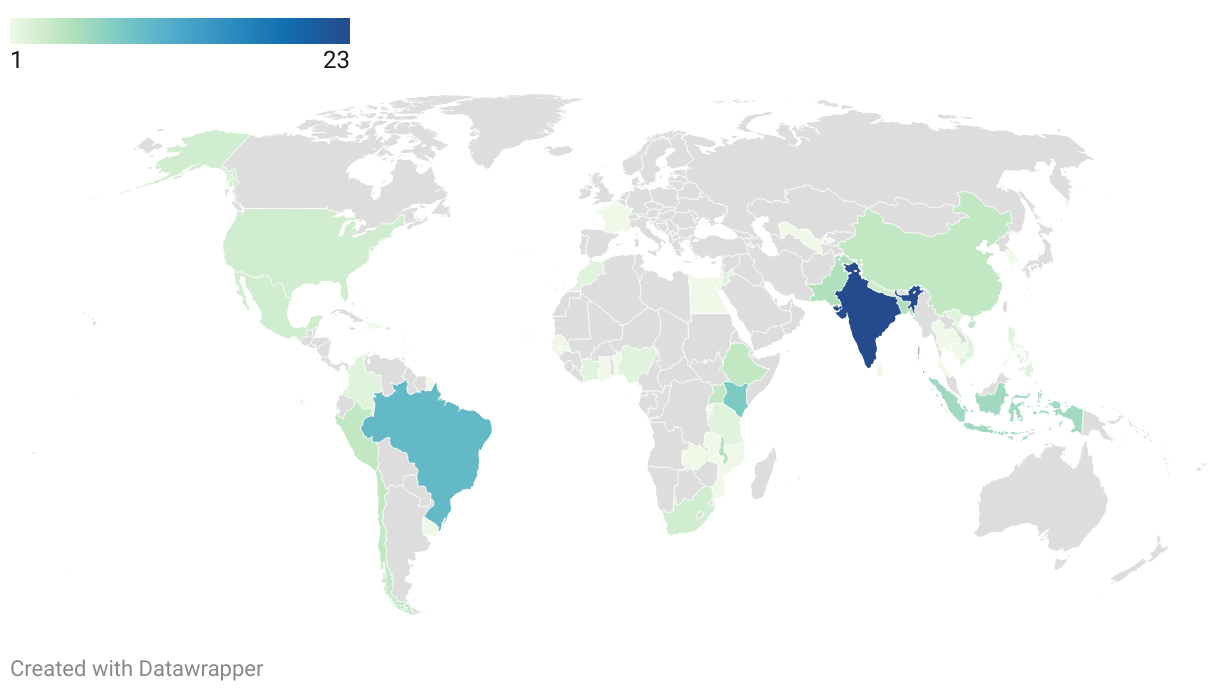Recommended
In announcing that refugees will be able to open bank accounts and participate in the formal economy, Imran Khan’s government has taken an important first step towards ensuring that refugees can access the formal labor market in Pakistan. Below we outline how to ensure the potential benefits are realized.
On Monday, Pakistan’s Prime Minister, Imran Khan announced via Twitter that he had issued orders to allow refugees to open bank accounts and “participate in the formal economy.” This is a groundbreaking announcement for Pakistan and a laudable decision, representing major progress toward greater rights for refugees and more sustainable, beneficial solutions to the protracted refugee situation in the country. Pakistan has provided a significant global public good by hosting large numbers of refugees for 40 years and allowing them freedom of movement. This announcement represents progress towards an even greater contribution.
I have issued instructions today that Afghan refugees who are registered can open bank accounts and from now onwards they can participate in the formal economy of the country . This should have been done a long time ago.
— Imran Khan (@ImranKhanPTI) February 25, 2019
On Thursday, the State Bank of Pakistan acted upon part of the announcement by issuing a policy stating that refugees can open bank accounts using their Proof of Registration cards (which all registered refugees have been issued). This is encouraging progress, but it remains unclear what policies will be enacted to allow participation in the formal economy. Effective implementation of policies that allow formal labor market participation could lead to a wide range of benefits for refugees and Pakistani host communities—particularly if they are enacted along with complementary policies and increased support from the international community.
Ensuring refugees have a right to work creates benefits for refugees and host communities
Khan has been in office for only six months, but this is not his first attempt to extend rights to refugees. In September, he tried to grant citizenship (in accordance with the Pakistani Constitution) to Afghan and Bengali refugees born in Pakistan. Although backlash stalled progress on citizenship, Monday’s announcement clarifies the Khan government’s stance on prioritizing productive solutions.
This persistence is likely in response to the size and duration of the refugee presence in Pakistan. With nearly 1.4 million refugees (and 1 million more undocumented Afghans), Pakistan is hosting more refugees than any other country except Turkey. And the country has been hosting a significant refugee population for several decades—at least 1 million, and as many as 3.3 million, refugees since 1980. As such, Pakistan has provided an unparalleled contribution in hosting refugees.
Until now, however, there has been no clear stance from the Government of Pakistan on refugees’ work rights and they have been excluded from financial services. Only a small minority have been able to obtain work permits and most have been relegated to the informal market where they are vulnerable to exploitation.
Despite this, many refugees have flourished: refugees are making major contributions, especially in certain sectors like carpet-weaving and gemstones, and have been doing so for decades. But by not including already-present refugees in the formal economy, the Government of Pakistan has forgone many other economic benefits. When refugees have access to the formal labor market, they are likely to pay more in taxes, be more productive in the labor force, employ more people as business-owners, spend more in the economy, and invest more in their own education. This contributes to refugee self-reliance, decreasing aid dependency and increasing government revenues and host community incomes.
Granting formal labor market access could thus greatly amplify the contributions of refugees to Pakistan. For example, low tax compliance is a widespread problem in Pakistan. There are many highly productive refugee-owned business that, if allowed to formalize, could potentially contribute to and grow the relatively small Pakistani tax base. And now that refugees are allowed to open bank accounts, the government will have a greater chance of ensuring refugee businesses are brought into the tax base.
As of now, it is not entirely clear from the Prime Minister’s tweet what labor market access policies will be implemented. If policies are created that enable greater or full access to the formal labor market in addition to allowing financial access, many of these benefits can be realized.
The benefits of formal labor market access can be amplified by complementary policies and international support
There are a range of complementary policies needed to enable the benefits cited above. Facilitating financial access is just one piece of the puzzle, and progress on this front should be cemented by effective communication about the new policy to all banks. In addition, the Government of Pakistan, with support from its partners, should pursue policies and programs to:
-
Lower legal and practical barriers to formal labor market access
To ensure that the benefits of de jure formalization are realized, the government should make it as easy as possible for refugees to obtain formal work. This means not requiring special permits on top of the documentation refugees already have, not placing additional requirements on employers that hire refugees, and clearly communicating refugees’ rights to employers and government agencies.
-
Enable refugee-owned businesses to thrive
As with access to employment, this would mean ensuring that it is as easy for refugees to register businesses as it is for citizens. In addition, refugees should be given the right to own and lease property, including land and equipment.
-
Increase access to education
Refugees currently have limited access to education. To ensure refugees can develop skills that maximize their contribution to the economy, barriers to education should be lowered.
-
Stabilize refugee status
When refugees anticipate being in the host country for a longer period, they are more likely to consume more and invest more in human capital, thus amplifying their economic contributions. The Government of Pakistan should set some refugees on a path to citizenship (a proposal which has already been discussed) and/or extend the validity of Proof of Registration cards for longer periods of time. These cards allow for residence but are set to expire in June and their validity is sometimes only extended for periods of about six months.
-
Communicate refugees’ contributions
Host communities may be more accepting of refugees when they understand the benefits refugees can bring to the community. This greater acceptance by Pakistani constituents can lead to sustained progress and implementation of new policies.
-
Invest in growth opportunities for hosts and refugees together
New investments should be made in a way that benefits both refugees and hosts. For example, investments in infrastructure should be designed to benefit the economy broadly, and programming such as job training and matching should target both refugees and host communities. An inclusive growth approach can lead to more equitable outcomes and also greater social cohesion.
The international community must proactively support the Government of Pakistan to ensure the benefits of these new policies are realized. Key steps include:
-
Ensure existing IDA18 refugee sub-window funding is used strategically
Pakistan is eligible for the World Bank’s IDA18 concessional lending sub-window for refugees and hosts. It offers the opportunity to make large investments that support continued policy progress and inclusive growth for refugees and hosts. Investments could be made to increase the capacities of the education system to generate better outcomes for hosts while also accommodating refugees; expand or rehabilitate infrastructure in refugee-hosting areas; improve administrative capacities to properly disseminate information about new refugee policies; and/or expand vocational and business trainings to help refugee and host community workers take advantage of formal labor market opportunities. Many of these investments would help both informal and formal workers, spreading the benefits across the population. For example, access to education can improve productivity even for those who remain in the informal market, and both informal and formal workers can benefit from skills training. This is important in the context of high rates of informal work among Pakistani citizens, at 82 percent, suggesting that many refugees will stay in the informal economy.
-
Generate and coordinate support from a wide range of partners.
NGOs and multilaterals like the International Labor Organization (ILO) and the UN High Commissioner for Refugees (UNHCR) can also invest in a range of jobs, livelihoods, financial inclusion, and education programs. In doing so, it will be critical to ensure that they focus on gender equality and social inclusion in both refugee and host communities. Private sector actors can engage refugees as employees, producers, investees, and customers. The private sector could also have a unique role to play in policy outreach to help ensure sustained progress in facilitating refugee access to the formal economy.
Many other major refugee hosting countries such as Colombia, Ethiopia, Jordan, Uganda, and Turkey have recognized the benefits of granting refugees formal labor market access and other complementary rights. With this announcement, the Government of Pakistan has taken a bold first step towards doing the same. With the right policies and a strong coalition of international support, Khan’s announcement can lead toward solutions that enable a broad array of benefits for refugees and Pakistani host communities.
Thanks to Helen Dempster, Kate Gough, and John Speakman for their thoughtful comments. All errors are our own.
Disclaimer
CGD blog posts reflect the views of the authors, drawing on prior research and experience in their areas of expertise. CGD is a nonpartisan, independent organization and does not take institutional positions.






